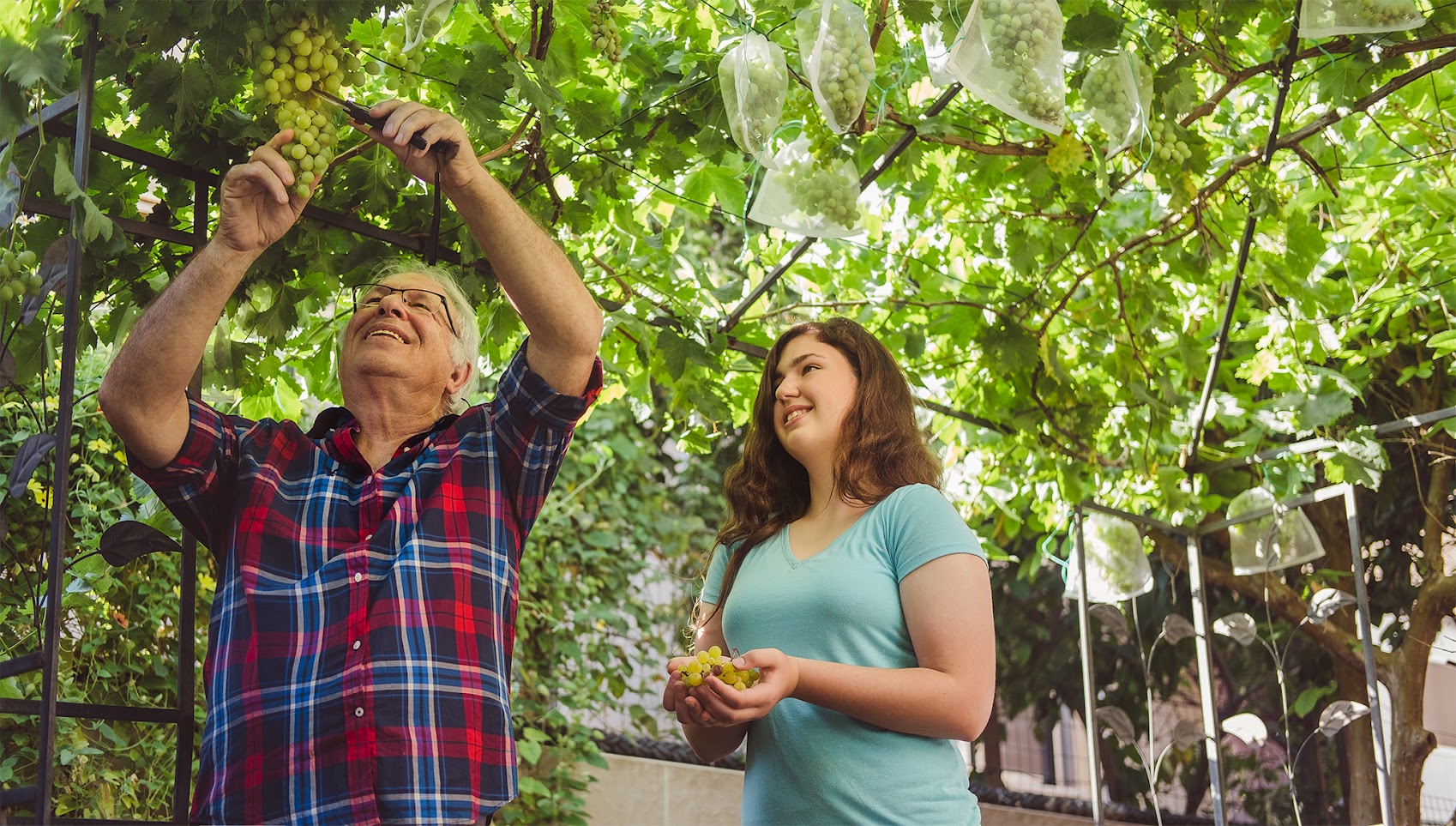Activities and Engagements for People with Advanced Dementia
Older adults can live with dementia and Alzheimer’s disease for many years. Dementia typically starts with mild symptoms and progresses over time, resulting in a gradual decline in cognitive functions, memory loss, and time and spatial disorientation. As the disease progresses, there is a noticeable deterioration in the capacity to carry out everyday tasks, accompanied by unfamiliar behaviors. Additionally, the ability to communicate effectively with the environment diminishes. Occasionally, individuals with dementia struggle with daily activities such as eating, dressing, and maintaining fecal continence.
Modifications in behavior are affected by the progression of the disease as well as by the environment’s reaction to the patients. Acquiring tools to cope with the modifications, including behavioral interventions in the treatment routine, can help promote the quality of life for both your patient, yourself, and their caregiver.
At any stage of dementia, two fundamental principles underlie life and the treatment of individuals:
- Maintaining their safety
- Maintaining their dignity
Communicating with patients with advanced stage dementia
As the disease progresses, people with dementia experience a decreased ability to recognize those around them. As family members and caregivers, It is important not to confront them with this forgetfulness.
Experiencing difficulty accepting and coping with the situation is a natural and understandable response, and it is important to seek support. However, when it comes to your relationship with family members or patients with dementia, it is of the utmost importance to express love and exhibit respect, even if they may not recognize you or remember who you are. They can still sense the love and respect from those who are with them, knowing that their best interests are being considered.
Physical gestures like holding hands, caressing, and offering hugs serve as a form of communication, and it is essential to learn how to provide them in a way that is suitable for both the person with dementia and you.
Maintaining a pleasant tone is crucial, even if the individuals you care for may not comprehend your words. In these instances, the tone of voice carries the utmost significance.
It is crucial to avoid shouting or using abrupt and commanding language that may sound like orders, such as "get up," "sit down," "eat," and so on. This type of communication style can create stress and occasionally lead to resistance. It is preferable to replace it with a soft and pleasant tone of voice, for example, “now we shall try to get up”, “here is the chair”, you better sit down”, and so on.
Going outdoors with people with dementia
People who suffer from different types of dementia have a natural inclination for movement, and it is vital to allow them to walk and wander in a secure environment or under the supervision and companionship of family members or caregivers.
Occasionally, people with dementia choose to wander on regular routes and in familiar surroundings. It is advisable to take preventive steps and explore their walking routes so you can easily detect them. This can be achieved by accompanying them to the places they frequently visit and joining them on their walking routes. While walking together, you can point at landmarks that will facilitate orientation, including trees, stores, and benches, and even write down their location in a notebook.
Activities that can substitute the need for wandering

Outdoor walks, taking into consideration weather conditions
When the weather permits, it is advisable to go out on walks, to visit favorite places, and more. It is important to adjust the duration of the stroll to the physical abilities and endurance of the patient.

A stroll along a route with a variety of stimulus
Such as eating, drinking coffee, and so on. For instance, going out and making stops at a coffee shop, purchasing a popsicle, falafel, and so on.

An outdoor trip with experiences that stimulate the sense of taste
Like eating, drinking coffee and more. For example, a trip outside and a stop at the neighborhood cafe, buying a popsicle, falafel and more.
Shared activities with individuals in advanced stages of dementia
Dementia evolves and modifies over the years, and so do the communication channels with the patient: verbal information may lose its meaning quickly, but at the same time, information that reaches the dementia patient through their senses (sight, hearing, and touch), may leave a mark for a longer period.
Regular shared activities can help dementia patients in maintaining simple cognitive abilities, including categorization and adaptation.
It is important to ensure that the activities are conducted in a pleasant manner, without causing stress or frustration among the patients. Furthermore, it is advisable to avoid making critical statements or statements that may trigger feelings of failure or helplessness in the patient.
Some activities for example:
Enjoyable activities for people with advanced stage dementia
It is important to find enjoyable activities that align with the cultural background and past experiences of individuals in the advanced stage of dementia and integrate these activities into their daily routine.
For example:
Important to note
Important to note
The Joint-ESHEL (Hebrew) Organization has established a new website that provides a comprehensive list of activities suitable for engaging family members and individuals with dementia at all stages.

















